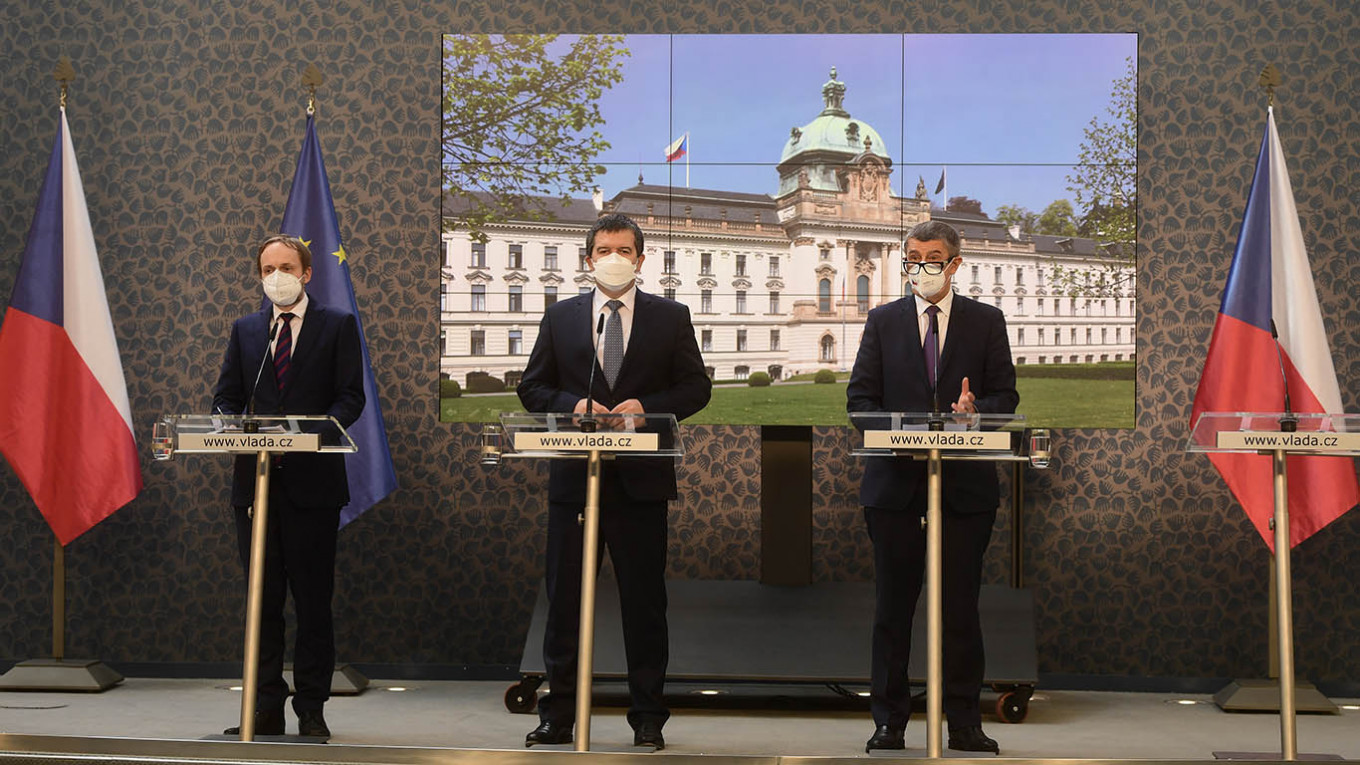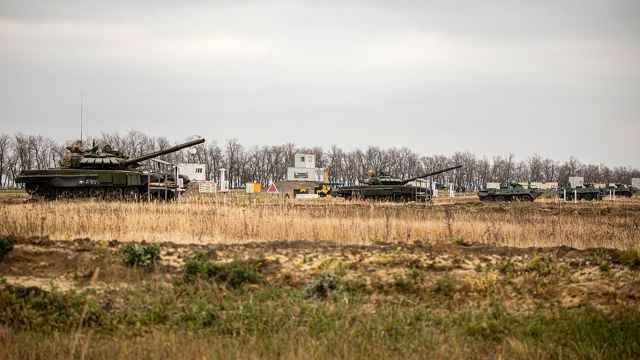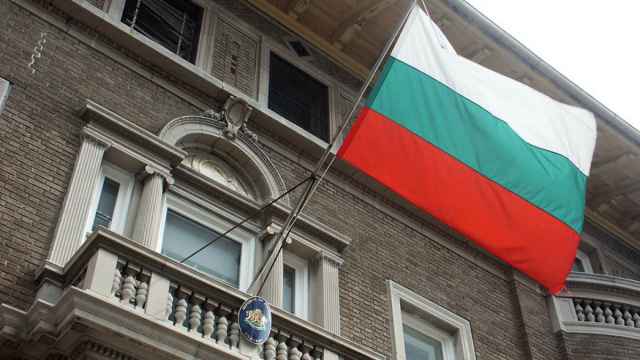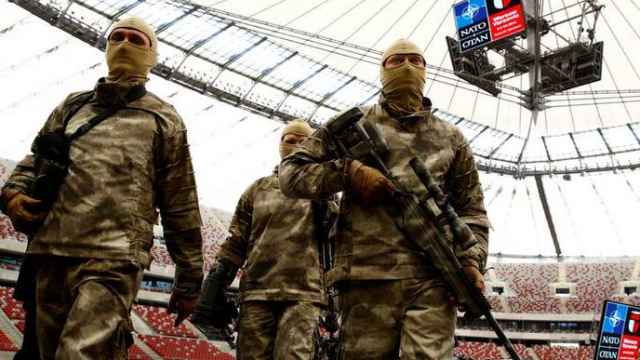Tensions between Russia and the Czech Republic soared this month when Prague accused Moscow of orchestrating a fatal arms depot blast on Czech soil in 2014.
The accusations set in motion a flurry of tit-for-tat diplomatic expulsions between Prague and its European allies on one side and Moscow on the other. Slovakia, Albania and the Baltic states all voiced concerns of Russian diplomats’ alleged intervention in their and their neighbors' affairs.
Moscow denies involvement in the Czech blast.
Days later, Bulgaria announced it had linked six Russian nationals to several past explosions at ammunition and arms depots on its soil. The four blasts, according to prosecutors, may also be connected to the attempted 2015 poisoning of Bulgarian arms dealer Emilian Gebrev for which three Russian nationals have been charged.
Here is a timeline of the events as they have unfolded over the past decade:
2011
Nov. 11: An explosion is reported at a warehouse near the northern Bulgarian village of Lovny Dol that is owned by Emco, a company headed by arms dealer Gebrev. Some of the ammunition and explosives destroyed were destined for sale to Georgia, Bulgarian prosecutors confirmed.
2014
Oct. 16: An explosion is reported at a warehouse in the Czech village of Vrbětice. Two people are reported dead as a result of the blast.
Dec. 3: A second explosion at the Vrbětice warehouse is reported. The ammunition stored there was meant for sale to Ukraine through Gebrev’s company.
2015
March 21: A blast is reported at a plant owned by Bulgarian state military company VMZ-Sopot in the village of Iganov.
April 14: A second blast is reported at the Iganov depot in Bulgaria. Part of the supplies destroyed in both blasts belonged to Gebrev’s Emco and were destined for sale to Ukraine.
April 28: Gebrev is hospitalized after falling ill at a reception he hosted in Sofia. Days later, Gebrev’s son and his business partner are hospitalized with similar symptoms. A subsequent inquiry determines that all three were poisoned with a Novichok-class nerve agent.
May 31: A fire breaks out at a forensics institute in Bulgaria’s capital Sofia where evidence for the previous explosions in the country is being stored.
2020
January: Bulgarian prosecutors charge three Russians with the attempted murder of Gebrev, his son and his business partner. European arrest warrants are issued for three suspects, including accredited diplomat Yegor A. Gordiyenko, the investigative outlet Bellingcat reported.
March 11: An explosion is reported at a Bulgarian state-owned arms manufacturing plant on the outskirts of Maglizh where strategically important ammunition was stored.
2021
April 17: The Czech government announces the expulsion of 18 Russian diplomats suspected of involvement in 2014 blasts. Russia later responds by expelling 20 Czech diplomats.
April 28: Bulgarian prosecutors announce that they suspect six Russian nationals of involvement in the arms depot explosions on its soil. They add that they believe there may be links between the blasts and Gebrev's poisoning attempt.
April 29: Bulgaria announces it will expel a Russian diplomat.
A Message from The Moscow Times:
Dear readers,
We are facing unprecedented challenges. Russia's Prosecutor General's Office has designated The Moscow Times as an "undesirable" organization, criminalizing our work and putting our staff at risk of prosecution. This follows our earlier unjust labeling as a "foreign agent."
These actions are direct attempts to silence independent journalism in Russia. The authorities claim our work "discredits the decisions of the Russian leadership." We see things differently: we strive to provide accurate, unbiased reporting on Russia.
We, the journalists of The Moscow Times, refuse to be silenced. But to continue our work, we need your help.
Your support, no matter how small, makes a world of difference. If you can, please support us monthly starting from just $2. It's quick to set up, and every contribution makes a significant impact.
By supporting The Moscow Times, you're defending open, independent journalism in the face of repression. Thank you for standing with us.
Remind me later.






